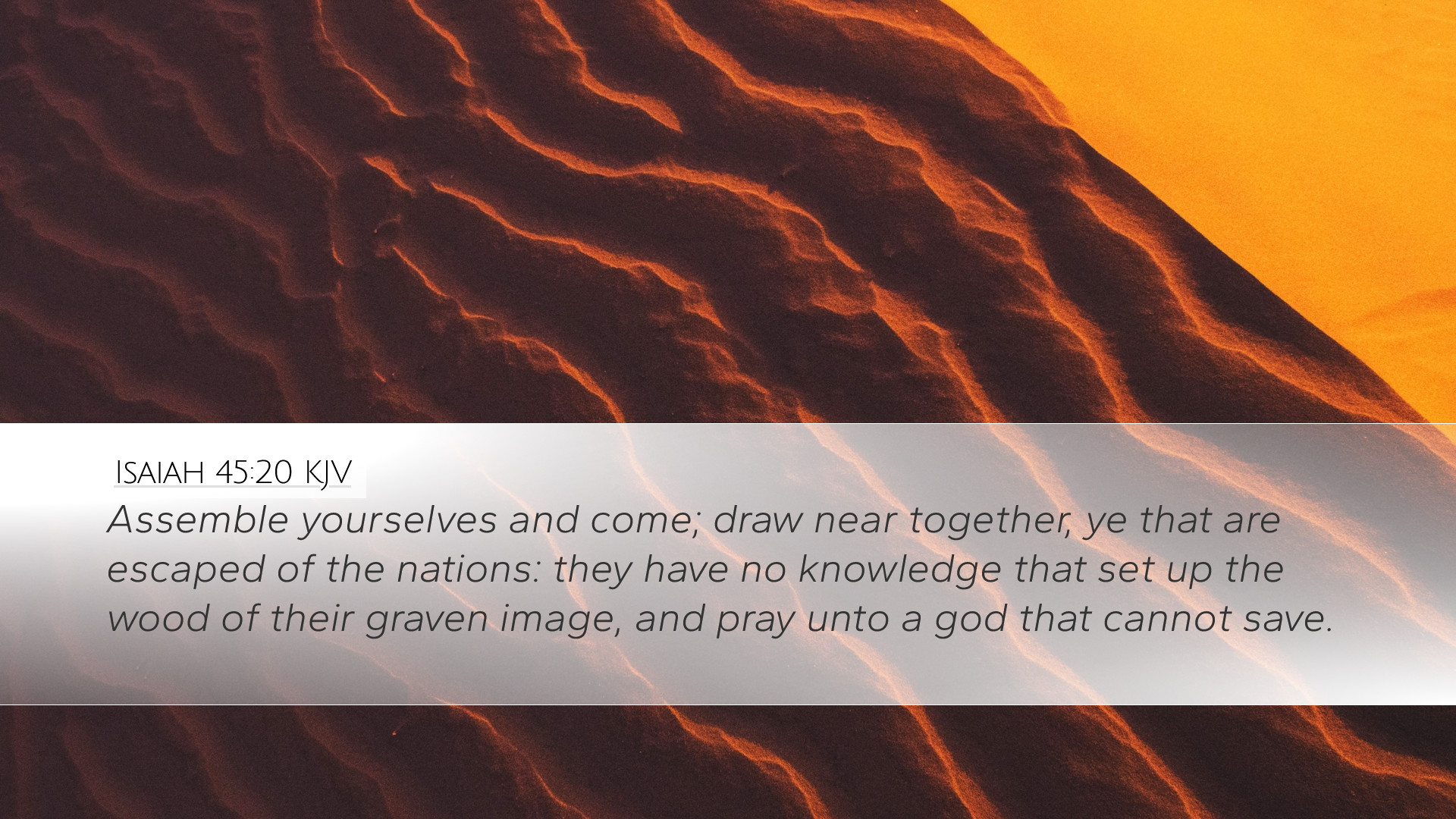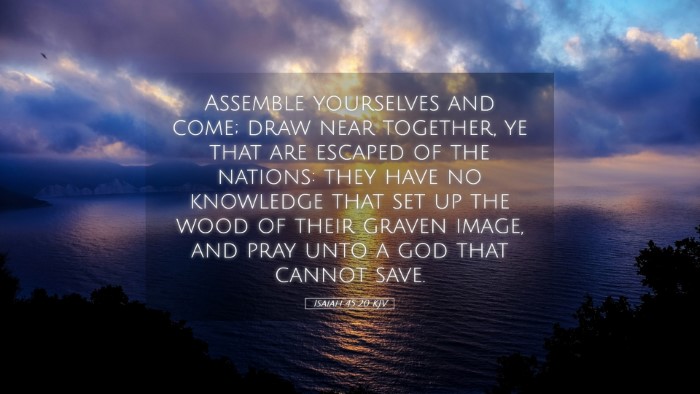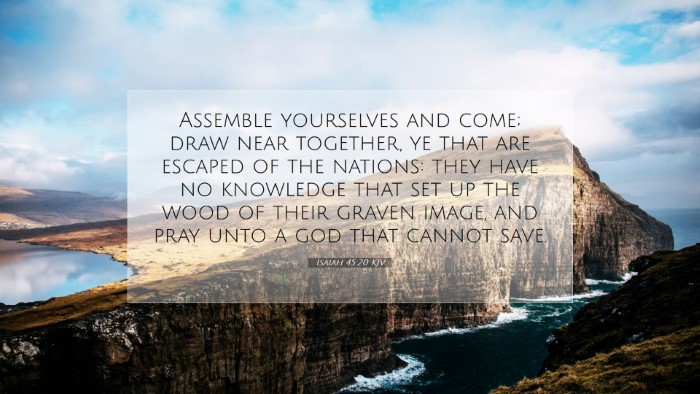Commentary on Isaiah 45:20
Verse Text: "Assemble yourselves and come; draw near together, you who have escaped from the nations. They have no knowledge, who carry the wood of their carved image, and pray to a god that cannot save."
Introduction
This verse is a part of a larger context in which God, through the prophet Isaiah, is calling His people to acknowledge the futility of idolatry and to understand the sovereignty of Yahweh. As biblical scholars and theologians examine this text, they find rich layers of meaning regarding divine revelation, the nature of true worship, and the call for genuine repentance.
Historical Context
Isaiah prophesied during a time when Israel was surrounded by nations that practiced idolatry. The call to "assemble" invites both the exiled Israelites and those who remain faithful to God's command. The contrast between the living God and the dead idols of the nations is a recurring theme in the prophetic literature. Understanding the historical context of idolatry sheds light on the gravity of God’s charge against His people.
Meaning of Key Phrases
- "Assemble yourselves and come": This call is an invitation not just for physical proximity but also for spiritual unity among those who bear witness to God's truth.
- "You who have escaped from the nations": This refers to those who have turned away from idol worship and recognized the one true God. It speaks to a remnant that remains faithful.
- "They have no knowledge": This is a profound indictment of the idolaters. Their ignorance of God leads them to false worship and reliance on powerless objects.
- "Carrying the wood of their carved image": This illustrates the absurdity of idolatry—worshipping something that requires human effort to create yet cannot act in any way.
- "A god that cannot save": This phrase emphasizes the impotence of idols, contrasting it starkly with God's ability to save and redeem.
Commentary Insights
Matthew Henry's Perspective
Henry emphasizes the invitation for God's people to come together and recognize their deliverance from idolatry. He notes that God wants His people to unite in faith, which highlights the theological principle that true worship must be communal. He argues that those who have ‘escaped from the nations’ must also recognize their duty to worship the only true God and avoid the futility of idol worship.
Albert Barnes' Analysis
Barnes provides a detailed examination of the concept of knowledge in this verse. He points out that the "knowledge" referred to is not merely intellectual but involves experiential acknowledgment and relationship with God. Barnes stresses that the curse of ignorance that falls upon idolaters leads to reliance on something that lacks life and power. His commentary calls readers to an awareness of God’s saving power in contrast to the lifeless objects of worship, encouraging believers to cultivate a personal relationship with God.
Adam Clarke's Commentary
Clarke's commentary dives into the consequences of idolatry, underscoring the futility of placing faith in inanimate objects. He elucidates the irony present in carrying wood for worshipping a lifeless image—a practice that ultimately leads to destruction. Clarke warns against contemporary forms of idolatry, urging readers to examine their own lives for anything that may take precedence over devotion to God. There is a strong call to repentance embedded in his insights, motivating believers to seek a more profound reliance on God's power and sovereignty.
Theological Reflections
This verse speaks volumes about God's desire for genuine worship rooted in knowledge and truth. It challenges the modern reader to reflect on their own idols—anything that competes for the devotion that is due to God. As pastors, theologians, and students of the Word, it is crucial to convey this importance of true knowledge of God and the dangers posed by idolatry in any form.
Conclusion
Isaiah 45:20 offers an urgent call to God’s people to assemble and recognize the impotence of idols contrasted with the saving power of Yahweh. The insights from public domain commentaries offer a multi-faceted view of this text, providing depth that is vital for spiritual growth and understanding. As we continue in our theological pursuits, let us take to heart the invitation to draw near to God, free from the entanglements of idolatry, enriched in our knowledge of Him.


